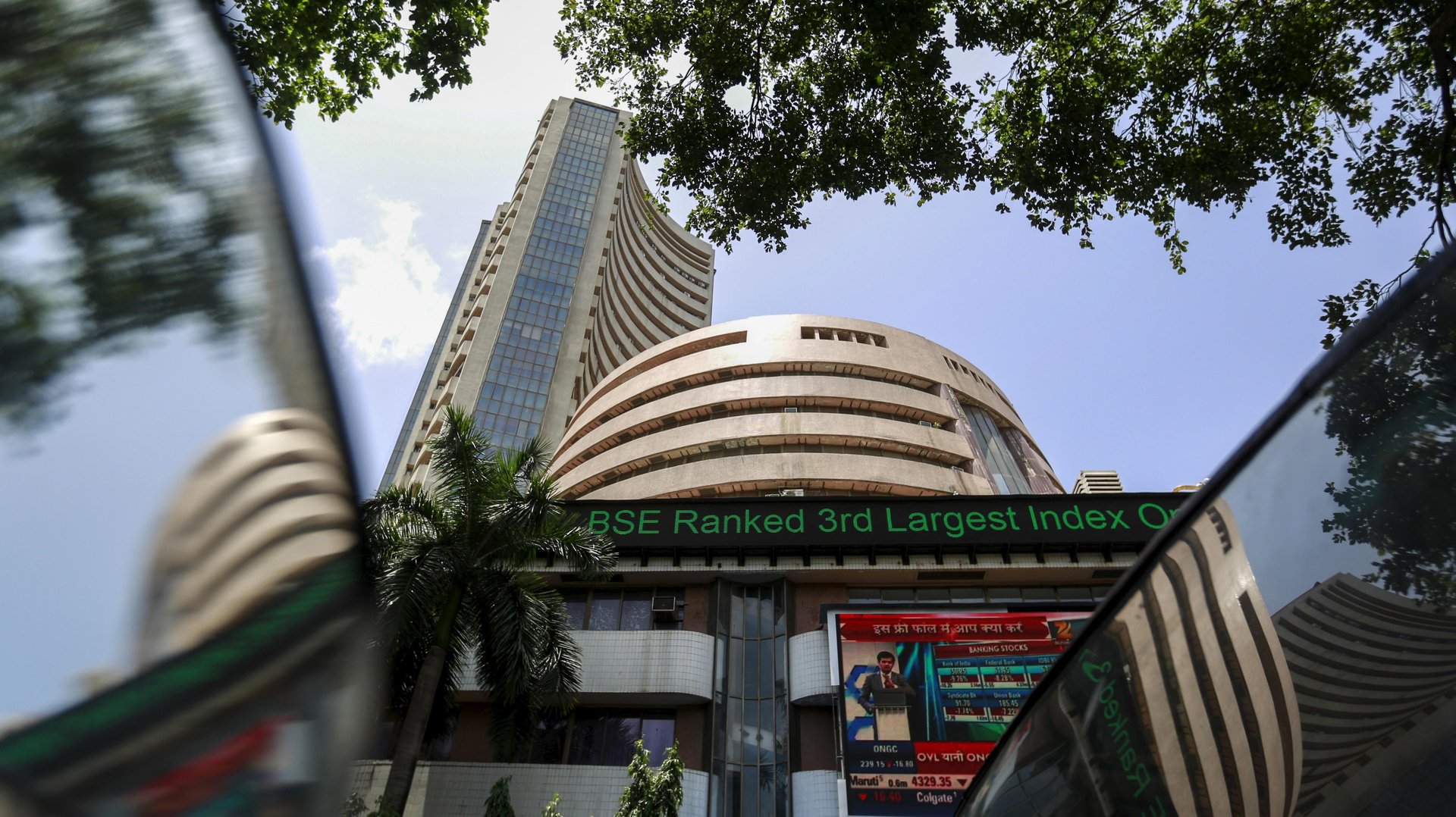Foreign investors pulled a record $16.5 billion out of Indian stocks this year
Despite dwindling foreign interest, domestic investors kept Indian stocks in positive territory

Amid wobbly economic conditions around the world, Indian equities have seen the worst sell-off ever from foreign institutional investors (FIIs) in 2022.
FIIs have sold Indian stocks worth $16.5 billion (1.2 lakh crore rupees) this year, translating to a daily average outflow of about $68 million, according to data from National Securities Depository Limited (NSDL). This rout was worse than the one during the 2008 global financial crisis, when FIIs pulled out roughly $12 billion from Indian stocks.
Still, the Indian benchmark indices—Nifty50 and Sensex—are ending the year up 3%, which has been possible only because of domestic institutional investors, who bought $32.9 billion worth of equities in 2022.
What’s ahead for Indian stocks in 2023?
During the pandemic years, the fillip to Indian equities came from a significant easing of monetary policy by global central banks, when investors parked funds in high-yielding assets such as Indian stocks.
But the US Federal Reserve’s rate hikes this year—the most aggressive in four decades—reversed the flow of funds into stock markets. Instead, FIIs directed their money into bonds. As of November, the bulk of foreign funds leaving Indian equities came from the financial and IT sectors, in both of which FII ownership is high. So far, FIIs have sold $8.42 billion worth of financial sector equities and $8.83 billion worth of IT stocks, according to NSDL data.
Analysts expect foreign investors to return sporadically in the beginning of 2023 and more steadily in the second half of the year, as China’s economy reopens and the global macroeconomic environment improves.
“Overall, Indian stocks are likely to continue performing better in comparison to other major economies and expected to give 10%-15% return in 2023,” Mohit Ralhan, the CEO of TIW Capital, a Singapore-based asset management firm, wrote in a note.
Analysts also expect that domestic investors will continue to boost Indian equities in the year to come. India has, so far, been relatively resilient to recent global economic shocks. But according to a note by analysts at Emkay Global Financial Services, a Mumbai-based research firm, recession risks rising out of the Ukraine war and shifts in monetary policy will undermine the performance of Indian stock markets in 2023, if only to a limited extent.